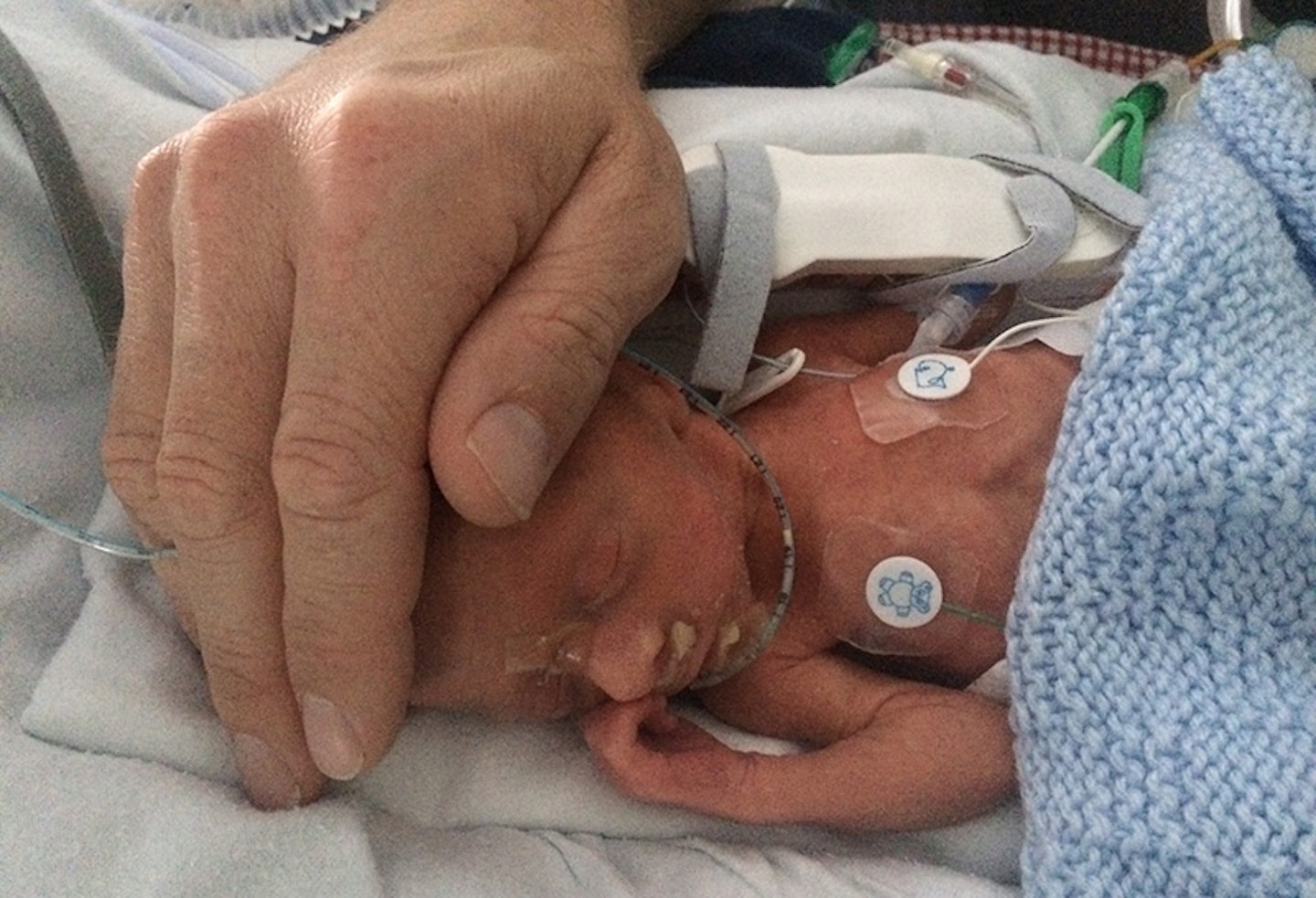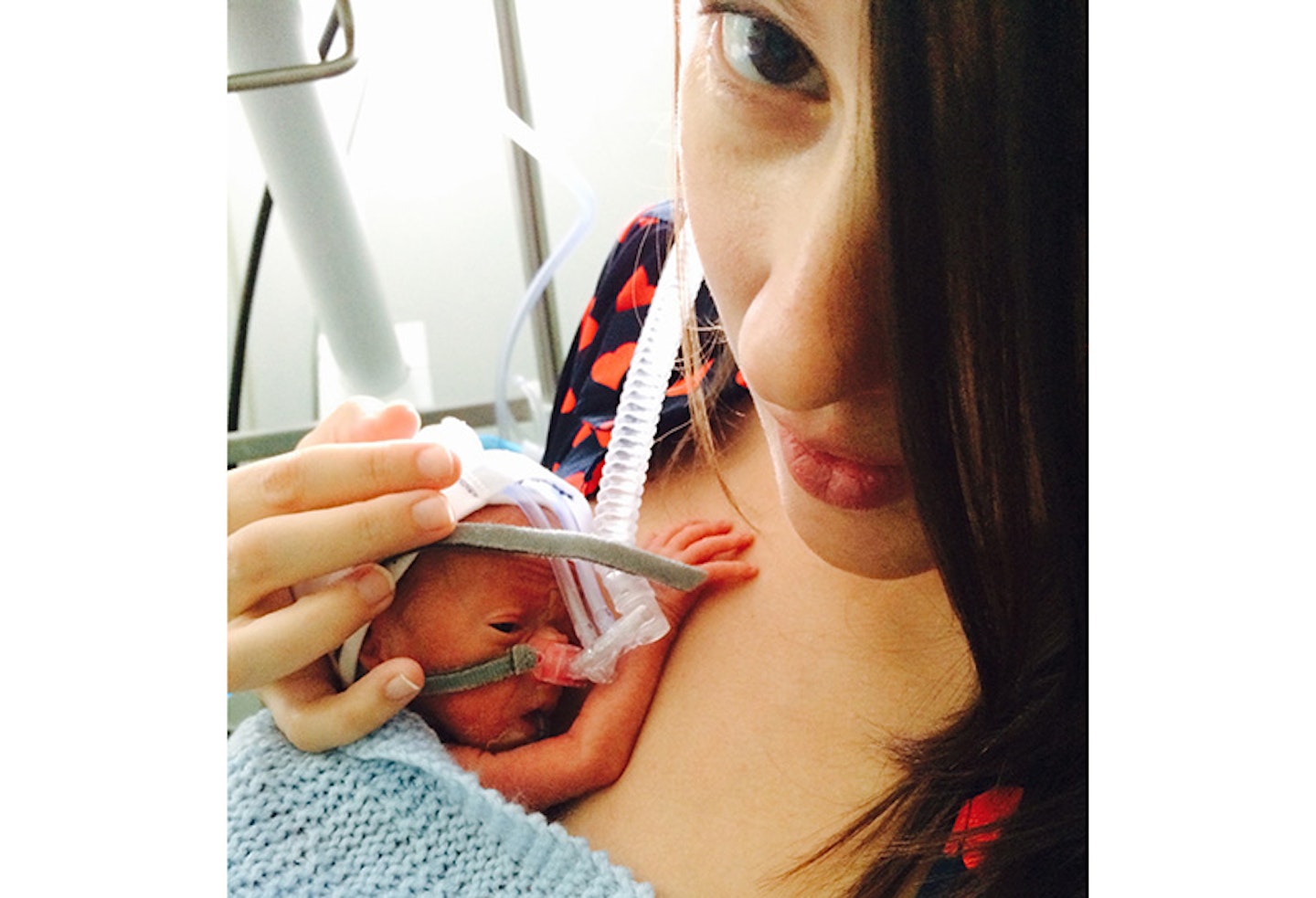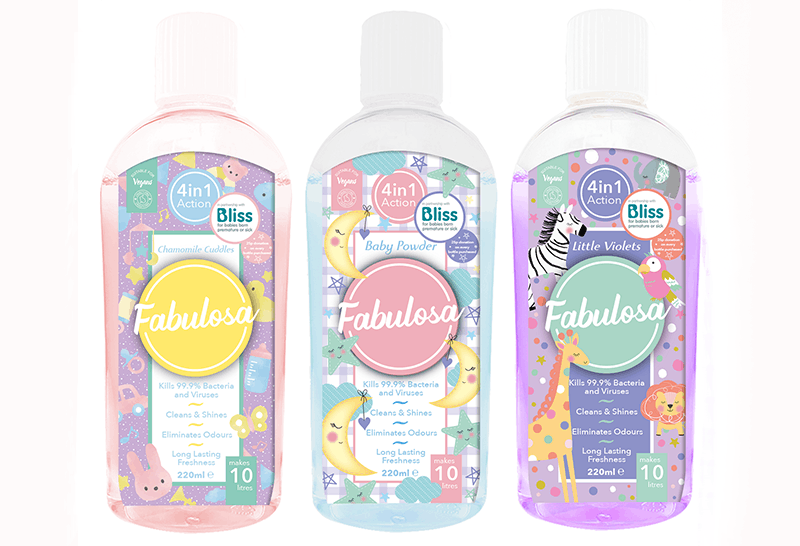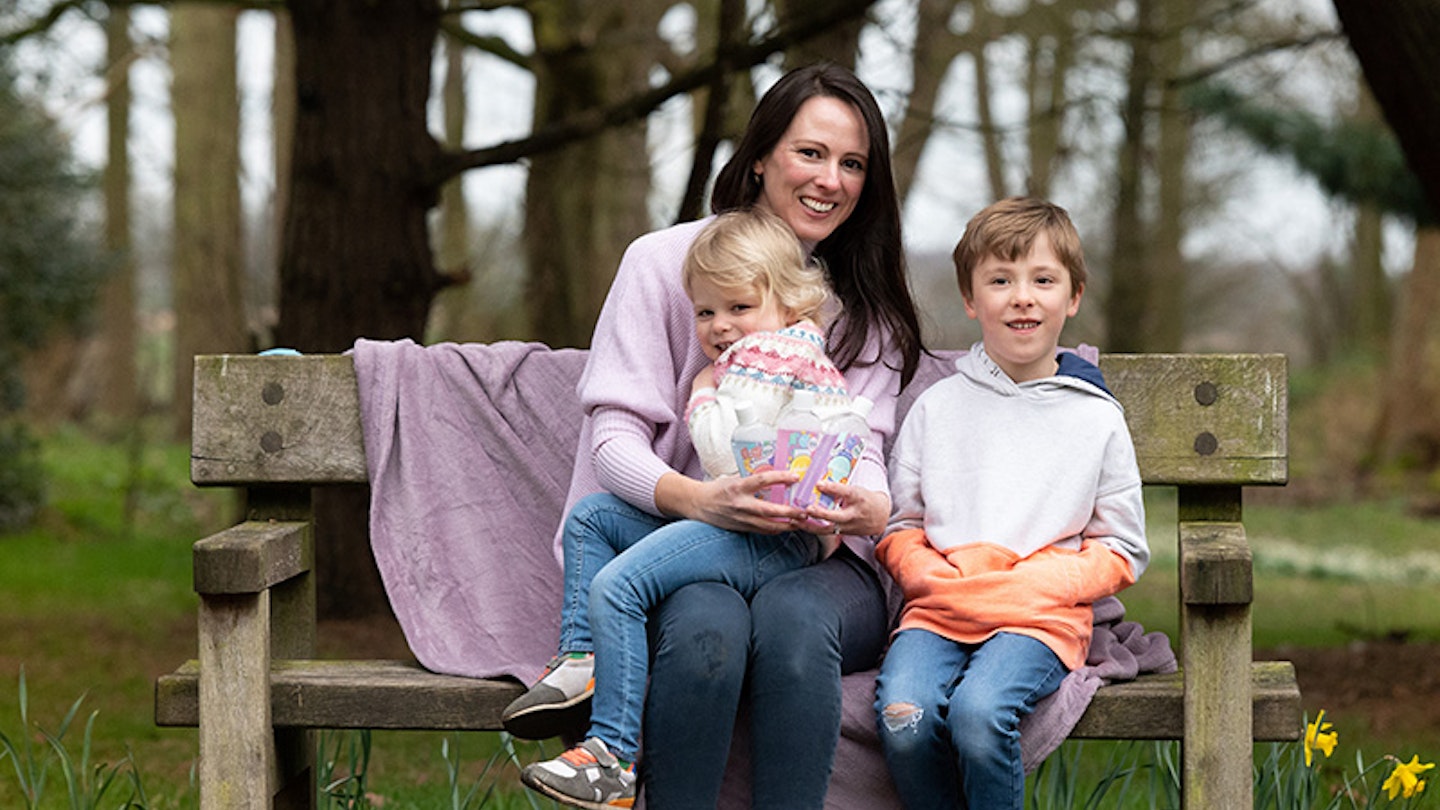Lady Sarra Hoy, wife of Sir Chris Hoy, is an Ambassador for leading neonatal charity Bliss, a cause close to her heart after her son Callum was born prematurely at 29 weeks.
Below, Sarra talks openly about her neonatal experiences, her advice for parents going through the same thing, and her involvement in launching a collaboration collection for Bliss with cleaning brand Fabulosa.
Tell us a bit more about your own experience of premature birth
Our baby boy Callum was born very dramatically, 11 weeks early in 2014 after I was diagnosed with pre-eclampsia and HELLP syndrome. As a result Callum, weighing just 2lbs 2oz, required two months of lifesaving treatment in a neonatal intensive care unit, before he was able to come home.

He is now a thriving 6-year-old and both Chris and I are so proud of him, not least because of the challenges he faced as a tiny baby. He has taught us so much already.
The impact of having a baby who requires neonatal care is not something you can anticipate or plan for and it's certainly not what you hope or wish for. It makes you a member of a club you didn’t know existed, but one that you come out of an expert - I can now confidently talk my way around an intensive care baby unit. I know all about ventilation equipment, brain scans, lung x-rays, heart monitors, blood tests, blood transfusions, oxygen saturation levels and CPAP machines just to mention a few!
You talk about it being a lonely experience – do you think parents sharing and normalising such situations is important?
The challenges of being separated from your newborn baby, who is very ill, are countless. It is a very isolating journey to have your baby stay in hospital and it sets you apart from the other mums-to-be who were pregnant at the same time as you.
It is a very difficult introduction to motherhood, as you sit beside your baby's incubator, often unable to hold or comfort your baby.
You are physically separated from them by a huge plastic box and they are covered in wires and tubes. All you can do is watch and listen to the flashes and beeps of the surrounding machines. You may be able to reach in and touch them, but ultimately all you can do is love them from a distance. It is very distressing.
The impact of what happened has definitely shaped my journey as a mother and sharing my experience has been an incredibly important part of the healing process for me.
Anyone who has experienced this has a unique story to tell, whether their baby was born prematurely or full term. However, having spent the last few years listening to many mothers whose babies had a neonatal stay, I have learnt that while the stories themselves might vary dramatically, the emotional impact is very similar. The complicated feelings of fear, trauma, grief, loss, isolation, joy, sadness, love, gratitude and exhaustion are prevalent in every story.
I think it is important to be honest and open about how difficult this experience can be. One in seven babies born each year in the UK will require neonatal care. That accounts for up to 100,000 families going through this each year. Sharing experiences can help support families and make them feel less alone.

The retelling of a traumatic event can also take the sting out of it and help individuals process what happened. In sharing my story, I’ve had the most amazing response from other families who admit they felt the same as me.
It’s very reassuring to realise your feelings aren’t unique or remarkable. Many have agreed when I explained I felt overwhelmed with the sense of loss and worry, yet at the same time privileged at being able to see and hold my baby at all.
This experience takes you to rock bottom then builds you back up again starting with the basics first, such as simply watching your baby learn to breathe.
What was the turning point and when did you know Callum was going to be ok?
When Callum was about seven days old, I remember a doctor telling me he thought Callum was doing well and we could start to take it day by day rather than hour by hour, but that initial fear does not leave for a long time and can last much longer than the neonatal stay itself. Even at discharge, the journey isn't over by any means.
Leaving the hospital with your baby is the moment you long for, yet it also fraught with worry, continued periods of ill-health and medical interventions. The weight of responsibility rests very heavily on you, as you say goodbye to the amazing medical staff who have been by your side until that moment of discharge.
What advice would you give to parents whose child is in an NICU?
With hindsight, I wish I had had the courage to find the joy of each day with my baby, but instead I was so crippled with the fear of what might happen tomorrow, that I was unable to accept the situation for what it was.
If anyone reading this is going through this experience right now, I would simply reassure them and say it is ok to find it overwhelmingly hard. It's because it is.
It is one of the hardest things you might ever have to do. I hope, in particular, parents will realise they aren't alone. I would urge anyone to reach out and ask for support.
What support is out there for parents?
My heart aches for any family going through this right now. The overwhelming fears and worries of having a sick baby are all-consuming. To add "pandemic" to the list of things to navigate is incredibly hard.
It is so important these families receive support in the current circumstances because what is already an isolating, lonely journey has been compounded by the effect of Covid19.
Bliss has been unwavering and unflinching in their commitment to neonatal babies. Bliss has met the challenge head-on and despite the circumstances has continued to support families on neonatal units and campaign for their rights whilst in the hospital during the pandemic.
Why did you decide to start working with Bliss?
It is so important mothers realise they are not alone and are given support in learning how to care for and look after their baby. No matter how unique your journey is with your child, other people can empathise, guide you and walk with you.
That’s why I am a proud ambassador for Bliss, the U.K.’s leading neonatal charity, for babies born premature or sick. Bliss is committed to improving outcomes for all babies admitted to neonatal care in the UK, by providing assistance and support to families. Trained Bliss volunteers are available on the units themselves, providing one to one support to parents. Bliss also has telephone helplines and online information available that will help guide families through their time on a neonatal unit.
Could you tell us a bit more about the collection with Fabulosa?
The partnership between Bliss and Fabulosa is a perfect fit. The work Bliss does focuses on family centred care which in turn improves the outcomes for babies in neonatal care. Fabulosa is a family run business themselves with a very personal story about why they wish to support Bliss.
For me personally, the partnership between Bliss and Fabulosa is particularly fitting in the current climate. As any parent of a neonatal baby will know, the concept of self-isolation, quarantine and infection control is nothing new.
I am delighted that Fabulosa has teamed up with Bliss to share their expertise, to support the very special work Bliss does for these very special babies.
Bliss offers a wide range of free services for the families of premature and sick babies including a new video call support service. Visit their website to find out more.

Find out more about Fabulosa's three exclusive fragrance additions to its concentrated disinfectant range - Chamomile Cuddles, Little Violets and Baby Powder (25p from each bottle purchased goes to Bliss).
Read more popular articles
What are neonatal units and what does it mean if my baby stays in one?
Need to talk to someone? Here’s how to get help when you need it
